#learning tips
Text
ONLINE THINGS THAT HELP ME ON UNIVERSITY, because someone may need it
resoomer.com –> summarizes the text (you can set your native language)
wordcount.com –> counts words in document
speechinminutes.com –> counts how long it will take to read the prepared text (you can also set whether you speak slowly, quickly or normally)
essaytopicgenerator.com –> generates the topic of the essay based on keywords (the field or type of essay can also be included)
researchgate.net –> free texts that can be referred to in the essay
academia.edu –> free texts that can be referred to in the essay
Google Drive / Microsoft OneDrive and Office365 –> free cloud with tools to make slides, documents etc.
sites.google.com –> make free, simple website without any skills
carrd.co –> make free, simple and pretty website without any skills (max. 100 elements)
Online converters –> change file type to different file type
icons8.com –> free icons (for slides, sites etc.)
remove.bg –> remove background from photo
loader.to –> download YouTube video or playlist as video or sound files
forms.google.com –> make simple form/poll/quiz/etc.
quizlet.com –> make flashcards and test yourself (some things are only in pro version now)
Streaming services –> documentary films, educational podcasts etc.
artsandculture.google.com –> explore art, online museum tours etc.
plantsnap.com –> recognizes plants and mushrooms
ecosia.org –> web browser, but they plant trees when you use it
tunemymusic.com –> transfers music playlist (or text song list) to another service
shazam.com –> recognizes songs
slidesgo.com –> slides templates
Darkling Dark Mode –> dark mode for Google Chrome
Darkling Dark Mode –> dark mode for Microsoft Edge
thesaurus.com –> finds synonyms (you can easily find similar websites in your native language)
Apple reminders, google calendar etc. –> help organize
Online libraries –> free books
html-online.com –> write html, css and javascript online
supercook.com –> shows recipes with things you have at home
edx.org –> free courses
academicearth.org –> free courses
#university#school#learning#learning tips#learning hacks#study#study tips#studying#website#useful#websites#tools#learning tools#apps#help#helps#back to school#back to universty#high school#elementary school#middle school#dark academia#academia#light academia#romanticisation#romanticise your life#ideas#essay#writing#essayhelp
4K notes
·
View notes
Text
15th April 2024
I've been ignoring my language course for the past 7+ months and my final exam for it is coming closer day by day T-T


Overall a productive day...
Today I :
Completed 5 lessons with grammar in Arabic
Attended my Arabic class
Finished my homework
Read 100+ pages (still counting)
Completed a novel
Total study time: 1 hour 30 mins
#language#langblr#studyblr#study motivation#school#study blog#language stuff#language learning#language study#language blog#arabic#arabic langblr#study aesthetic#student#studyspo#studying#arabic language#study productivity#high school#100 days of productivity#studying tips#study session#study tips#exam season#student life#learning tips
57 notes
·
View notes
Text
I learn languages better when I don’t learn from a textbook.
I do fun little mini games or continuously try to translate poems, I make guesses on how words fit together until I have an unexplainable understanding of basic grammar, and only then do I check a textbook to explain what I understand.
We’re built to learn languages. When a language is taught, there’s a disconnect between the text’s explanation and actual, deep understanding that will help me learn more as time goes on. It’s great to be able to double check grammar rules to be sure I got it right, but I can’t learn when primarily “taught”.
#light academia#academia#world languages#learn languages#language learning#language#linguistics#aspiring polyglot#polyglot in training#langblr#studyblr#study tips#language tips#solo learning#learning tips#learning#euphrosynthetic
610 notes
·
View notes
Text
adhd ppl. How do we actually study or learn something in long courses ?
14 notes
·
View notes
Text
TIPS FOR LEARNING KOREAN!
HI!!! I'm Korean, but most of my communities are English-speaking, so these are my tips to improve fluency, retain knowledge in, and learn Korean!

1. Consume media in Korean
There's a bunch of Korean language entertainment, especially recently. I'll make a separate post on this one, but video games with Korean dubbing/text, k-drama, manhwa, etc. is very helpful!
2. Talk out loud
Even if you have no one to talk to in Korean, try reading your written/text work out loud! Even if it seems silly, it helps a lot more than you'd think.
3. Research Korean culture/history
Language is a part of society, so things that you may not understand in Korean could start making sense once you learn why it's said like that!
4. Don't overwork yourself
Rest is important. If you study too much, you may lose the practical/fun aspect to the language, and it can make you burn out! Don't do that.
5. Ask for help
If you know anyone willing to help, ask! My asks are always open for any questions that you may have ♡

#langblr#korean#korean language#korean langblr#language learning#language#south korea#korean language learning#learning korean#tips#language tips#learning tips#honey tip
14 notes
·
View notes
Photo
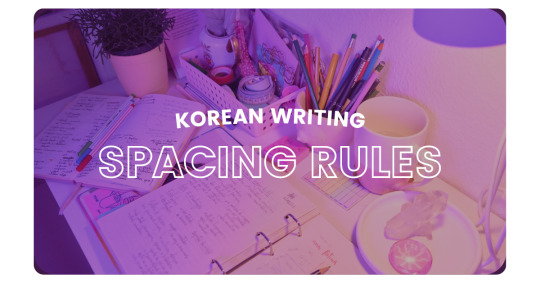
Writing in Korean can be quite complex when it comes to spacing (띄어쓰기), as it involves several factors like grammar, sentence structure, and even the type of words. In this article, I’ll share some of the most important rules I’ve learned with you.
1. Particles:
Korean uses particles to indicate grammatical relationships between words in a sentence. To ensure clarity, it is essential to separate these particles from the following words. Some commonly used particles in Korean include 은/는, 이/가, 을/를, 에, 에서, (으)로, 에게, 도, 와/과, and so on.
For example, in the sentence “저는 한국에서 떡볶이를 먹었습니다” (I ate Tteokbokki in Korea), there are three particles used: 는, 에서, and 를. To make it clear, it is essential to add spaces after each particle.
It is essential to note that particles are included as part of the preceding word. Therefore, particles are not standalone words and should be attached to the word they modify without spaces.
2. Independent Nouns:
In some sentences, there may be two or three nouns put together to form a noun phrase. In constructing such phrases, it is generally advisable to separate each independent noun with a space.
For example, “한국 음식” (Korean Food) and “경영 대학교” (Business University) both consist of multiple nouns that should be separated by spaces.
However, there are exceptions to this rule:
Compound Words: When words are combined to create a new meaning, they should be written without spaces. For example, “tear” in Korean is “눈물”, a compound word made up of 눈 (eyes) and 물 (water). This word should be written together as “눈물” without a space between them. The same applies to verbs such as “to visit,” which is “방문하다”, a compound word made up of “방문” (visit) and “하다” (to do).
Proper Nouns: If the noun phrase is a commonly used or official name, such “한국관광공사” (Korean Tourism Organization) or “국립중앙박물관” (National Museum of Korea), it is standard to write the entire phrase without spaces. Doing so makes it more easily recognizable as a specific entity or organization.
3. Person’s Name and Title
Korean personal names consist of a surname and a given name, both of which have independent meanings and can be used as separate words. Although it can be argued that they should be written separately, personal names are unique nouns, and Korean surnames are usually only one syllable, making them feel incomplete on their own. Therefore, it is customary to write personal names without spaces between the surname and given name.
For example, “Park Ji-min” is written as “박지민,” “Kim Min-seok” is “김민석,” and “Lee Min-ho” is “이민호,” all without spaces.
However, when titles or job names follow a personal name, they are separate units and should be written with a space between them.
For example: 박지민 씨 (Mr. Park Ji-min), 민수철 교수 (Professor Min Su-cheol), 김 의사님 (Doctor Kim) all have a space between the personal name and the title or job name.
4. Numbers and counters:
In Korean, spacing is used between every ten thousand when writing numbers. This means that if you have a number with five digits or more, you will use a space to separate the digits in groups of four.
For example:
이천이십삼 (2023)
구만 팔천칠백육십오 (98765)
일억 이천삼백사십오만 육천칠백팔십구 (123456789)
When it comes to combining numbers with counters, there are two cases to consider:
If you write the number in digits, there is no space between the number and the counter. For example, “1개” (one piece), “2번” (two times), and “3명” (three people) have no space between the number and the counter.
However, if you write the number in words, there should be a space between the written number and the counter. For example, “삼 학년” (third grade), “칠천 원” (seven thousand won), and “칠 개월” (seven months) have a space between the written number and the counter.
5. Word modifiers:
When a modifier (such as an adjective, verb, or adverb) modifies a word, it should be separated from the word by a space. This helps to clarify the relationship between the two words and make the sentence easier to read.
For example:
유나는 예쁜 여자예요 (Yuna is a pretty girl)
한국 와서 처음 먹은 음식 기억나요? (Do you remember the first food that you ate in Korea?)
저는 일을 잘 해요 (I do my job well)
All use spacing to separate the modifier from the word.
Additional Notes:
– It’s worth noting that there are certain grammatical structures in Korean that require specific spacing. For example, “(으)ㄴ 적이 있다” (have done in the past), “(으)ㄹ 수 있다” (can/be able to), “아/어 보다” (try doing) and so on. It’s important to pay attention to these spacing rules when learning Korean to ensure that your writing is accurate and clear.
– Finally, when using “이다” (to be) or “아니다” (to not be), it’s important to note that “이다” is written immediately after a noun, while “아니다” is written separately from the noun due to the particle. This is important to keep in mind when writing sentences that use these verbs.
For example:
학생입니다 (I’m a student)
학생이 아닙니다 (I’m not a student.)
The preceding explanation outlines my current understanding of the spacing rules when writing in Korean. However, I also want to point out that there might be some special cases or exceptions to these rules that I’m not aware of. So, if you have any experience with these special cases, I’d love to hear about it! Let’s share our knowledge and learn from each other.
🌸 🌼 🌻
Support me at: https://koreanlanguageloving.my.canva.site/
#Korean Language#Learn Korean#Study Korean#Hangul#korean langblr#Topik Writing#Korean Writing#Korean Topik#한국어공부중#한국어공부해요#한국어공부하기#한국어공부#한국어 공부#한국어#한국어수업#한국어 수업#한국어능력시험#Learning Tips#korean grammar
113 notes
·
View notes
Text
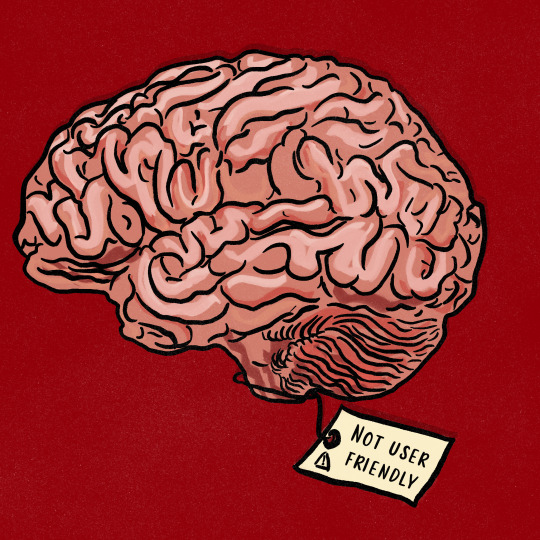
Not "user-friendly".
Wish it came with a manual or something.
#adhd#adhd brain#adhd problems#adhd women#nlp#nlp techniques#learning tips#train your brain#brain health#mental health#brainpower#self love#digital art#illustration#women artist
36 notes
·
View notes
Text

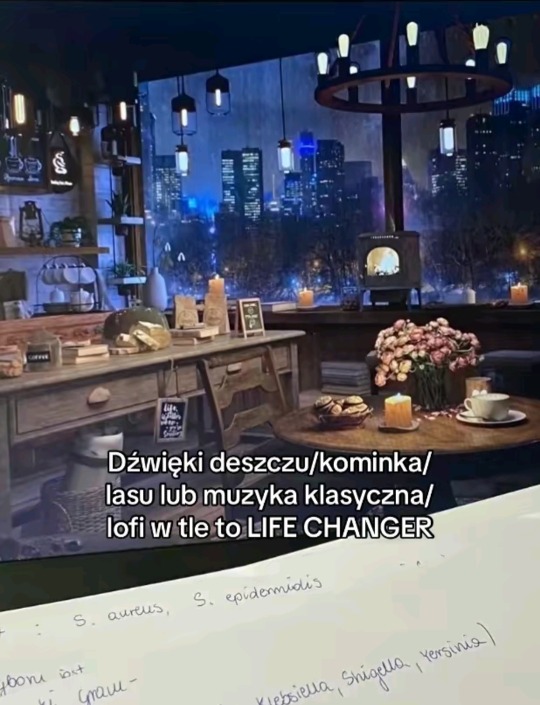
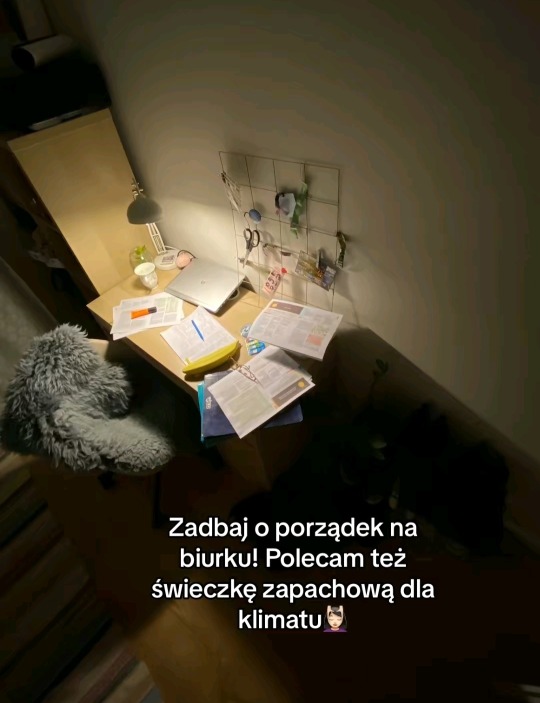


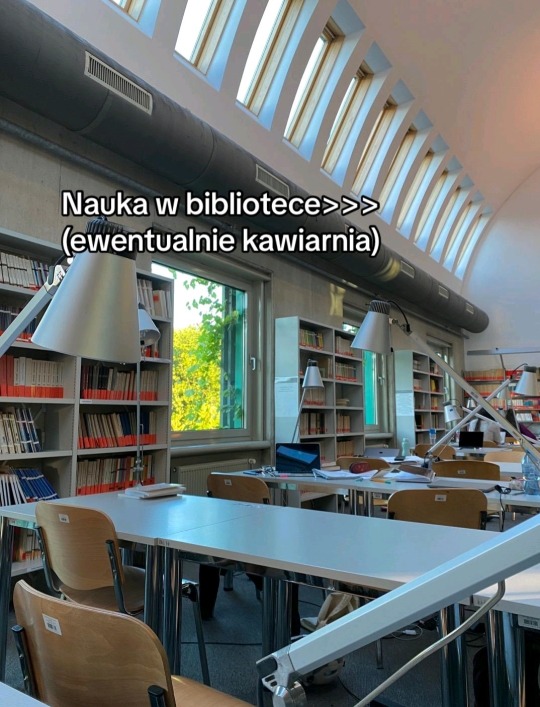


📖✨Romantyzowanie nauki, czyli powrót do nauki w nowym roku szkolnym/studenckim✨📖
#autumn academia#autumn atmosphere#autumn aesthetic#autumn#jesień#learning techniques#romantizing school#romantize your life#romantizing life#polski blog#polish girl#polish tumblr#small habits#habits#learning tips#study tips#study aesthetic#studyspo#study motivation#study time#study techniques
21 notes
·
View notes
Text
4 tips for your fast adoption of any language
1. Learn whole sentences instead of isolated words
our brain stores only useful things and we communicate in sentences, not in words
2. Learn the sentences by heart
superficial browsing through materials doesn't get people anywhere, it is a waste of time
3. Be active
try to translate the stuff from your real life instead of relying on your textbook all the time
4. Have FUN with the language
there are many fun and engaging resources
for students of Chinese there is an amazing site with countless wordplays
take your learning to the next level for a price of 2 coffees: https://herohero.co/chineseffect
#learn mandarin#learn chinese#chinese langblr#mandarin langblr#langblr#edublr#mandarin#mandarin edublr#chinese vocabulary#mandarin chinese#chinese edublr#study chinese#mandarin vocabulary#study mandarin#language#polyglot#foreign language#language tips#learning tips#中文#learning chinese#foreign languages#efficient learning#education#study languages#duolingo#language learning tips#study language
16 notes
·
View notes
Note
hello cris! i would love to ask as someone who is currently learning a language (i'm currently trying to learn italian again for the nth time) what are your favorite techniques when it comes to learning a language? i've been trying to study italian for two years now but i always end up giving up immediately 😭🫶🏻
Hello anon!
Firstly I had a vague memory of talking about this before and I checked my masterlist so in case you want to read more here is another similar ask I answered to a while back and here an ask in which I meanioned a few italian fiction books for people who are learning. I'll be honest I did not reread those and I don't remember what I wrote lmao. But you have some more reading to do after this just in case!
At the moment the main language I am very slowly trying to learn is Irish. But I will be honest it's more a free time hobby than actual studying. In the sense that I don't have a schedule for it and I have ups and downs in which I am able to focus a bit more, and times like the past few months in which my energy is nowhere to be found so I do very little progress. The main way I am dping this is with duolingo, which I feel is a great way to start and to keep a tiny bit of practice in your everyday life which is fundamental. Of course if you want to have more progress I would suggest coming up with a more structured study plan and schedule, but I'll talk about it in a bit. The other thing I am implementing is a grammar book that of course is what requires more mental energy. My technique with that is, as everything I study, to read it, underline important things and write my own set of notes. That is because I know it is my main way of learning in general.
And with this we come to a important point, before getting into learning anything try to figure out what are the ways you learn things best. Everyone's brain works differently, I personally have awful memory and my brain works way better using logic (which is why the way duolingo is structured works wonders for me, because it forces me to learn grammar rules with logic and it repeats vocabulary so much that even I end up memorizing it). Writing notes down, even several times, is my go to way of learning in general so of course I focus a lot on that. Clearly with learning a language you also need to implement a lot of practice, which is way I recommend trying out a well made plan. This doesn't mean create insane goals that will make you feel overwhelmed. Instead create a low effort plan in which you regularly do a bit of everything:
Learn vocab and practice it
Learn new grammar rule and practice them
Work on booktext esercises
Active learning with a book
Active learning with a video
These are just some ideas. When I self studied english what really made me learn the language was active learning by immersing myself with the language. That forces you to learn. Watch youtube videos in italian (I am pretty sure there's some people who make specific videos for language learnera in which they speak slowly and focus on certain vocab, so I highly recommend those, but when you feel more comfortable with the language go for pure entertainment, that will have you learn actual spoken Italian which is of course different from textbooks). Approach the language with written texts with either children's books or those novels simplified for language learning (those are great because you often get exercises to practice how much you understood of the story).
I know I have probably mentioned it before, but the first way I got into self studying English when I was younger was by writing down lyrics to my favourite album. I think I have it lying around still, a notebook filled with the lyrics to all the songs from Imaginaerum by Nightwish next to the translations. Listening to music in your target language is such a good trick imo. Take my brother, the guy does not speak one word on English but he knows by heart all the lyrics to Iron Maiden songs all.of.them. he never really had to practice English but if he had to I would suggest he started there. The more you get your target language into your daily life the better it is, and I don't mean just learning from books. Force yourself to describe the room you are in in your target language, write about your days in a diary and do that in your target language. When you are waiting in line list all the words that come up to you in your target language. It's hard at first, of course it is, but with time it gets easier and easier. The final goal is to be able to think in your target language, even if the grammar isn't perfect and it takes a long time to remember the correct words.
Think of yourself as a young child. They are learning languages like you, starting from zero, so focus on things that are for them, books and movies. You cannot expect to learn a language like a native speaker of your age right away, they have years of experience speaking it. If you instead think of yourself as a kid you will approach things that are at your current level, and after you can move on from there.
I think the goal is to make a plan and to fit even the tiniest bit of language learning into your everyday life. The progress might be slow but you are training your brain anyway. When you see something isn't working change it up, give yourself reachable goals, and keep it fun.
I hope this was somewhat helpful! If you have any other questioms my inbox is always open. Buona fortuna!
#ask#asked#asks#answered#language learning#langblr#studying#studyblr#study tips#learning tips#cris speaks#mine#the---hermit#anon
19 notes
·
View notes
Text
My style of using flashcards (  ̄▽ ̄)
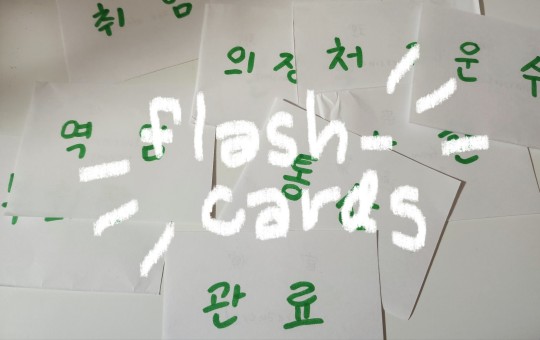
Yippee!
I've been using flashcards since elementary school and this is my favorite way of using them. I'll use Korean words to showcase my method.
Usually I'll have a main side and secondary side. I'll write the main side in large letters and use a fun color and the secondary one with black pen. Here I used green to contrast the black. Idk colors motivate me...
I'll have a few words from different categories every time.
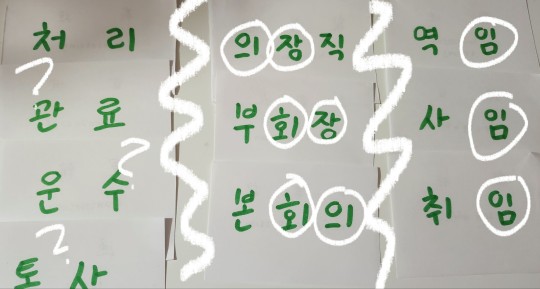
Here's what I mean: a few categories with similar-sounding words and one with random words. I never exclusively do similar-sounding words as I remember better when there are only a few similar ones.
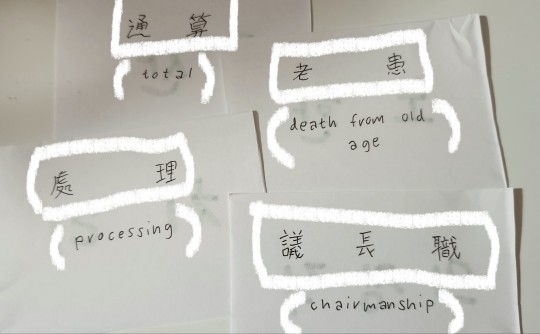
The secondary side has two definitions, usually either two writing systems or two languages (polyglot tingz) so I get as much out of these cards as I can. In this case, there's hanja and English!
I'll flip through a pack like this for a few days, usually 2-3. Then I'll make another one!
I'll take the pack out again in a month and if I don't remember a word, I'll add the word to my current pack! If old cards keep coming back, I'll stop making new ones and study the old ones until I remember.
#langblr#language#learning#korean#한국어#studyblr#flashcards#new words#words#learning tips#hanja#한자#한국어 공부
7 notes
·
View notes
Text
Point to remember :))
It doesn't matter if someone you know has completed the whole material twice or thrice, what matters is how much of it you actually remember.
Sadly, our education system does not test how much we know, it only tests how many of the questions we can answer. So, the content you put in your answers matters more than what you know.
So, you're doing good, just don't stop and focus on your own progress. :)
#school#studyblr#exam season#exams#high school#study motivation#study tips#studying#student#studying tips#studyspo#study blog#study aesthetic#study with me#studyblr community#education system#education and learning#high school studyblr#learning tips
50 notes
·
View notes
Text

50 notes
·
View notes
Text
Another thing that may help you learning and practicing vocabularies, is describing images you find online (or you took).
Just take any random image and state each color + objects, or even describe what you see around you in the same way (forniture, stationery, clothing... just choose a topic and go).
You can practice singulars/plurals, nouns' genders, articles, adjectives (little/big, near/far), colors and whatever you want, according on how you feel and what you have just learnt.
Just pls remember to always save your texts especially if you're writing here on tumblr. Mine just got suddenly eaten away and I have to start it all over (which may be a good thing cause I get the chance to re-think about everything, but still...)
#languages#studyblr#learning languages#practice languages#learning language#learning tips#learning language tips#langblr#will do a poll to show? probably yes!
39 notes
·
View notes
Text
tip for practising numbers in your target language: once you've got the numbers down, you can use a random number generator and try to pronounce the numbers it gives you out loud. it helps with becoming more confident in using numbers!
5 notes
·
View notes
Text
KOREAN MEDIA!
Some pieces of media that I personally enjoyed that may help retain your Korean :)

games
1. Mystic Messenger (dating sim)
-> Korean voiceover in calls, visual novel mode, and stickers!
-> good for learning how Korean people text in general; may be a little outdated, but not inaccurate at all
-> text can be changed to Korean, English, Spanish, or Chinese
2. StoryTaco games (otome game company)
-> all of them are written in Korean
-> only some (i.e. secret crossing) have voice acting and can be very sexual
-> you can change the language, but since there's little to no voice acting, I recommend using it for reading practice
shows & movies
1. Physical 100 (reality TV show)
-> reality tv series about athletes (etc.) and athleticism
-> there are a lot of different dialects and accents, and you can listen to how real people talk
-> they swear sometimes LMFAO
2. Single's Inferno (dating show)
-> so I like reality TV, sue me
-> flirting in Korean mostly
music
trot (older Korean music, similar to enka)
-> Hong Jin-Young's Love Battery is a good place to start, and maybe Shabang Shabang
-> more popular with older folkx (아줌마들 ㅋ)
-> might get called 촌스러워 but who cares
k-pop (Korean pop)
-> I am not elaborating on this because I'm not particularly into it, but there's quite a big fanbase, so it shouldn't be too hard to find something and take a listen
homebands/k-indie bands (Korean underground style music)
-> very edgy (?) I wanna say
-> some popular/more mainstream ones are Jannabi, Black Skirt, 10CM, and SE SO NEON
manhwa
TBA because I can't think of any rn LOL
#language#language learning#korean langblr#korean language#langblr#korean language learning#south korea#korean#honey tip#learning tips#language tips
4 notes
·
View notes